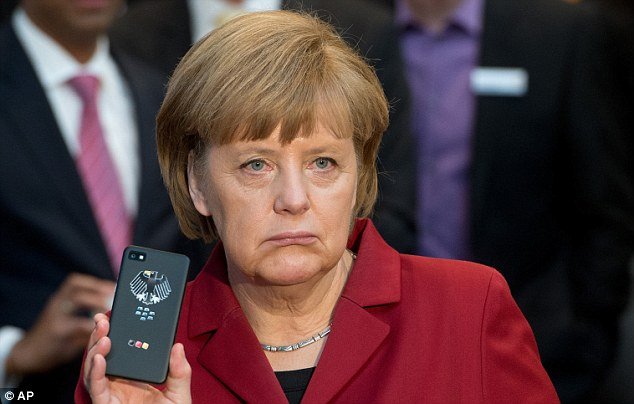
The fresh allegations of US spying threaten to overshadow talks at an EU summit due to begin in Brussels.
The EU summit comes a day after German Chancellor Angela Merkel called President Barack Obama over claims that the US had monitored her mobile phone.
France’s President Francois Hollande is pressing for the issue to be put on the agenda following reports that millions of French calls had been monitored.
EU leaders will also discuss Europe’s economic recovery and immigration.
Some EU leaders are likely to want to use the summit to demand further clarification from Washington over the activities of its National Security Agency (NSA) in Europe.
The US is being called to account by its allies over allegations of spying based on material said to originate from NSA leaker Edward Snowden.
Angela Merkel says she wants US officials to clarify the extent of their surveillance in Germany.
Her spokesman said the German leader “views such practices… as completely unacceptable”.
Angela Merkel demanded an “immediate and comprehensive explanation”, said Steffen Seibert in a statement.
“Among close friends and partners, as the Federal Republic of Germany and the US have been for decades, there should be no such monitoring of the communications of a head of government,” the statement added.
A front-page commentary in Thursday’s Suddeutscher Zeitung – one of Germany’s most respected papers – refers to the “biggest affront”.
It says an attack on Angela Merkel’s mobile phone would be an attack on “her political heart”.
The White House said President Barack Obama had told Angela Merkel that the US was not monitoring her calls and would not in the future.

However, it left open the question of whether calls had been listened to in the past.
State-monitoring of phone calls has a particular resonance in Germany – Angela Merkel herself grew up in East Germany, where phone-tapping was pervasive.
In July, German media carried comments by Edward Snowden suggesting the NSA worked closely with Germany and other Western states on a “no questions asked” basis, monitoring Germans’ internet traffic, emails and phone calls.
“They [the NSA] are in bed with the Germans, just like with most other Western states,” Edward Snowden was quoted as saying by Der Spiegel magazine.
However, Angela Merkel denied any knowledge of the collaboration.
In June, Barack Obama assured Angela Merkel that German citizens were not being routinely spied upon. At the time, she was criticized by her political opponents for not being more skeptical.
Meanwhile, a major focus of the summit will be to boost the digital economy – seen as vital for growth.
With markets becalmed, Spain coming out of recession and Ireland soon to exit its bailout programme, there are signs of progress for Europe’s leaders to celebrate, says our correspondent.
One of the key initiatives of the European Commission is its Digital Agenda for Europe, which it says “aims to reboot Europe’s economy and help Europe’s citizens and businesses to get the most out of digital technologies”.
Council officials say investment in the digital economy is vital to boost growth. They want to address market fragmentation and a perceived shortage in IT skills.
They may also discuss telecoms reform, data protection and a cap on credit card payments.
The European Commission – which makes the rules – has recognized that it may have gone too far in some places.
President Jose Manuel Barroso says he wants the EU to be “big on big things and smaller on smaller things”.
He says the Commission has cut more than 5,000 legal acts in the past five years and wants to do more.
On Friday the leaders will discuss relations with central European countries, ahead of a November summit at which new agreements will be signed.
Migration will also be discussed, following the loss of hundreds of lives among migrants trying to reach Europe from Africa and the Middle East.
The commission has called on EU countries to offer “additional and urgent contributions” to prevent further tragedies at sea.
It wants greater resources to survey and patrol sea routes, but also a more co-ordinated approach to dealing with migrants.
Countries on the Mediterranean coast deal with sudden and unmanageable mass arrivals, but the countries which approve most asylum requests are Germany, France and Sweden.
The commission wants a more even resettlement of refugees.
EU sources say the leaders are likely to promise improved co-operation, but not more money or resources. They say they first want a new surveillance effort, Eurosur, to come into force, to see what effect it has.
[youtube 8Myal_F1Ifo 650]